THE INTERVIEW — FEB. 28, 2019
Creativity and Practicality with Chef Nyesha Arrington
A Different Kind of Palate
Interview by Nicole Ziza Bauer
Cover photo by Deepi Ahluwalia
Some things—like a Renoir up close or a sunrise at thirty thousand feet—are simply best experienced. Some people are like that too.
Similarly, Chef Nyesha Arrington and the passion with which she approaches her career are best seen to be believed. Hers is a vision that exists because of—and yet beyond—the bounds of senses and technique.
It would be easy to summarize her as a graduate of the Culinary School at the Art Institute of California, named a 2011 “Rising Star Chef” by Angeleno Magazine, listed on Zagat’s “30 Under 30” in 2012, and garnering an impressive CV anchored by the Michelin-starred names Josiah Citrin and Joël Robuchon—but to do so wouldn’t yield the full picture. Arrington possesses every ounce of her craft, but in a way that reveals rounded edges where you’d expect sharp corners. She’s generous, thoughtful, and not surprisingly, an empath.
“It’s been interesting to carve out what is my legacy and what I want to do when I’m a grown-up,” Arrington tells me after we’ve settled into the bar at her Santa Monica restaurant, Native. “I’m very fortunate because throughout my childhood all I did was cook. It took me looking back on that after high school to really connect with that. When my friends would come over, I’d always play restaurant. We’d never play house. I’d always be cooking…soups, broths, different things. I love how it would make you feel.”
She discovered culinary school thanks to a friend’s suggestion and it was an immediate fit for the then seventeen-year-old painter and sculptor. “I’ve had these small epiphanies throughout my life when it feels like stars just align and I’m on the right path,” she says. “There’s a scene in the movie Ratatouille where he eats the ratatouille, the lens focuses, and he goes back to his childhood. That’s how I felt the first day sitting in culinary school. I [thought], ‘I’m all in, world.’ This is my life.”
In a time when creative careers are frequently launched more on branding than skill, Arrington’s success is refreshingly well-deserved. Sure, she may have competed on Bravo’s ninth season of Top Chef and won Food Network’s Chef Hunter, but the caliber of her career isn’t fueled by the limelight. It’s driven by something far deeper.
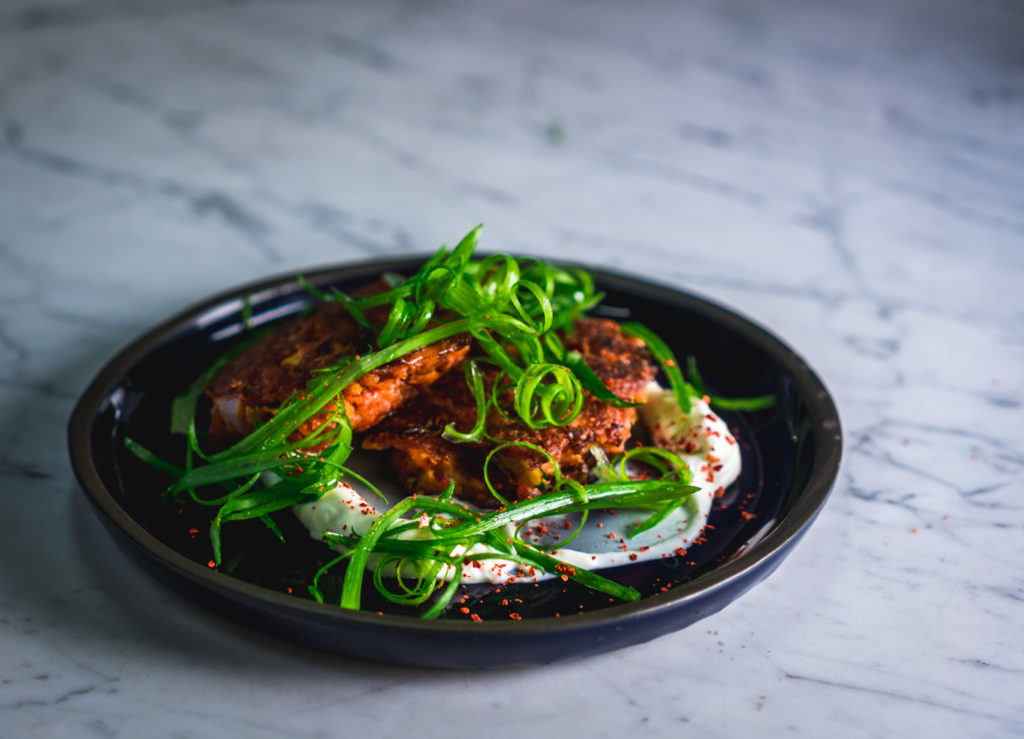
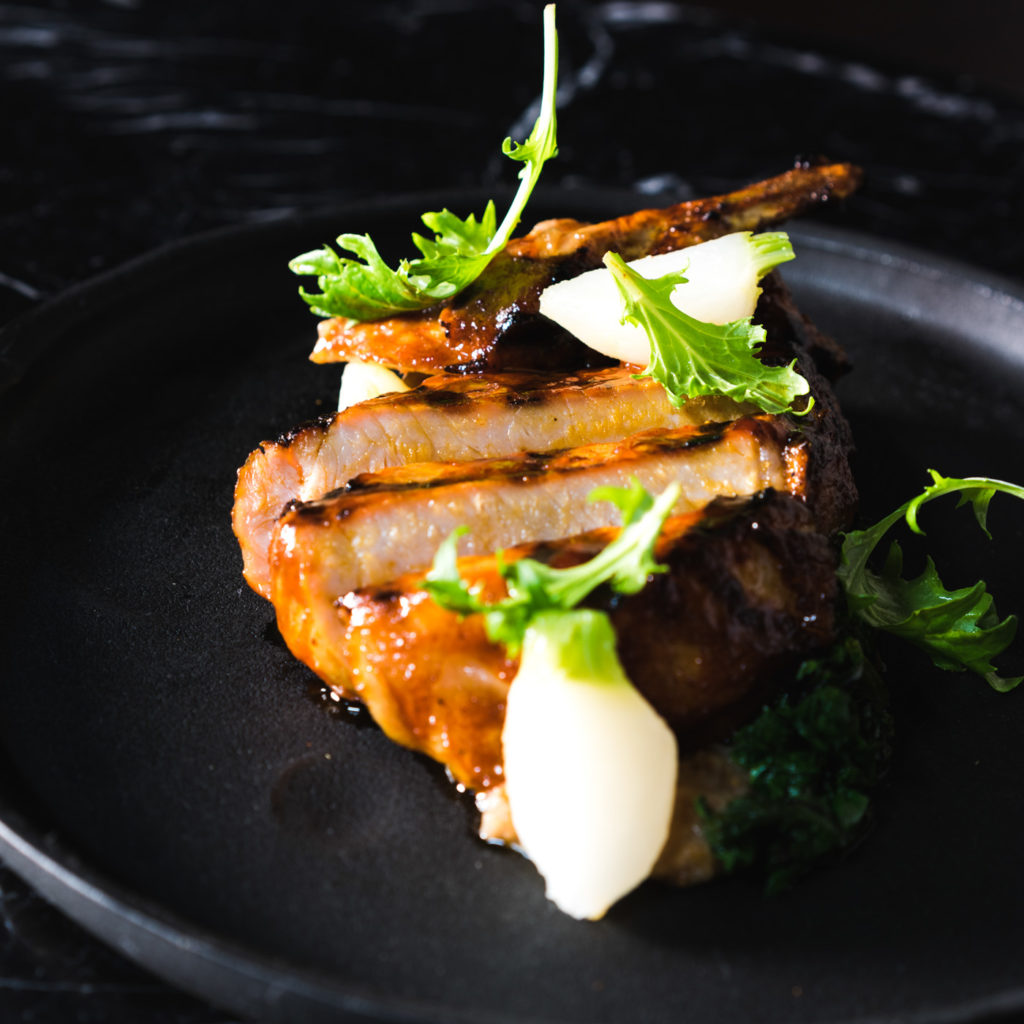
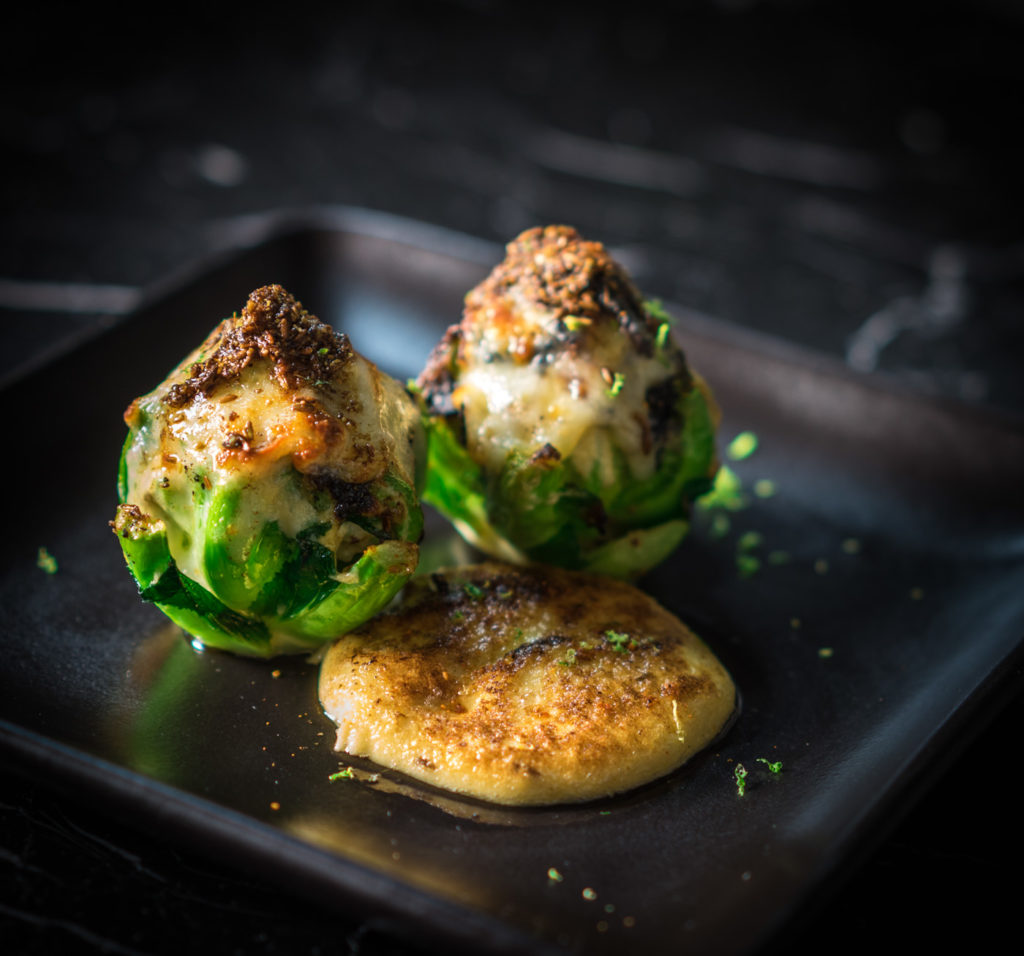
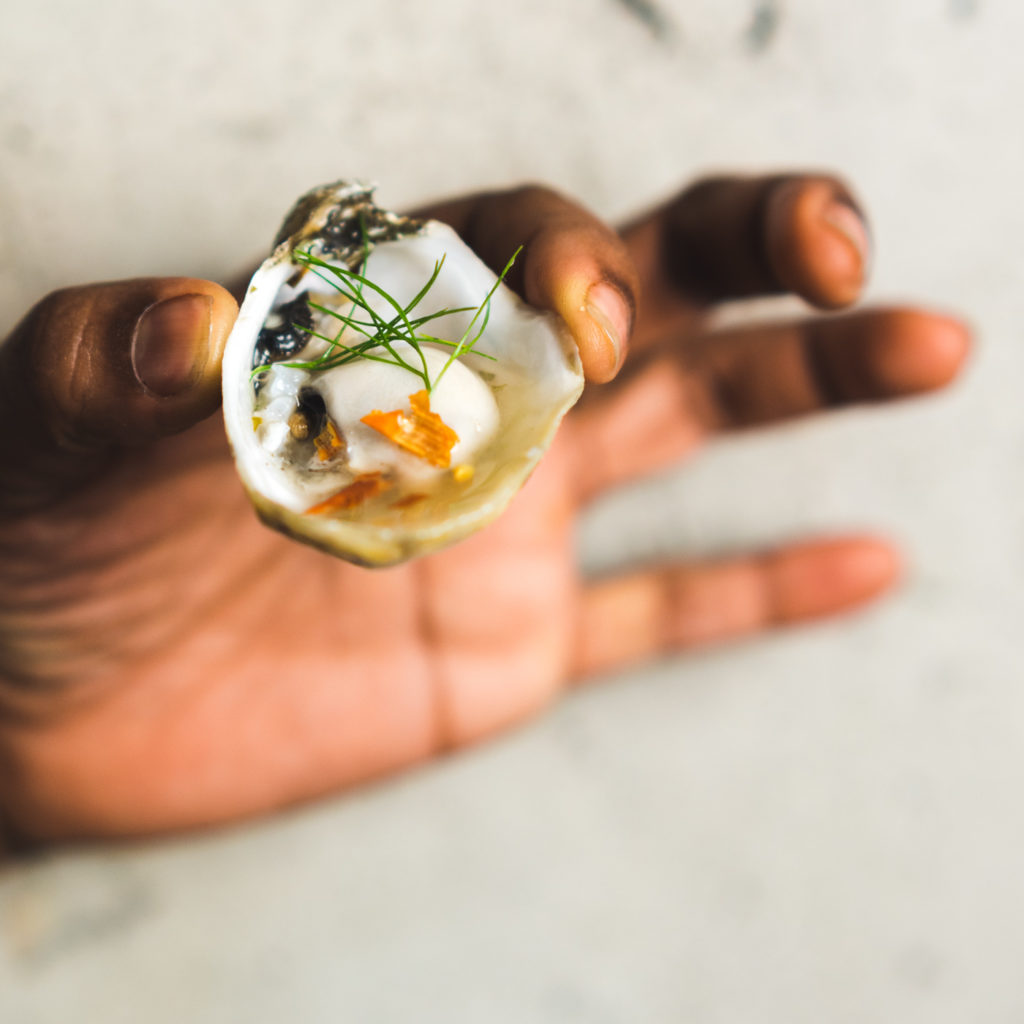
What drove you from art into food?
Nyesha Arrington: Growing up, my dad was heavily into music, film, and wrote a couple of screenplays—super right-side of the brain artistic. I gravitated toward that; that’s my love language. I used to paint and sculpt a lot more. Now, I use the plate as my canvas, so to speak.
I got a lot of inspiration from my grandmother, who’s from Korea. She taught me a lot about discipline and I always joke that my first sous chef position was when I was five working with her peeling the garlic and blanching the vegetables, standing next to her on a step-stool thinking, “That looks like a lot of garlic or octopus to get through.” I remember thinking through what would be the most efficient way to do it so I could go play.
For me, it’s not just about the cooking, not just about owning one, five or ten restaurants. I like to connect with people. That’s why I called this restaurant Native. I thought about the common denominator for people, what is the through-line, and [it’s that] everyone is a native something or comes from somewhere. There’s indigenous food that I get to celebrate with the farmers.
Was there something about using food as an art medium that uniquely appealed to you?
Just as someone can paint something and it can live on a wall and be observed by people, [food is] the same idea, but it lives in the soul. That’s so freaking special. You’re able to take different mediums like color, texture, temperature and flavor and create different layers of an experience. It’s synonymous with creating visual art, but with more meaning, really.
How do you define art?
Art is something you can think about, create and apply a medium to, making it tangible. Art is creation. It comes from a very personal place—a place of self-expression, and it’s something you want to share with someone. You want someone to engage and feel something.
Given all of those layers, what does your creative process look like? How do you determine when a plate is a success?
There are successes and failures, and you can learn from your failures. That’s also part of the process of art.
Two weeks ago, it was raining and I was at the farmers market schlepping boxes around, but I felt happy. I thought, “I want to create a dish that is bright and cheery to offset this dark rainy day. Yellow. I’m going to create a dish of sunshine.”
I wanted to make it vegetarian, so I had cured egg yolks. I made a cashew cream steeped with turmeric, and we added disks of pickled yellow beet, kumquats and mizuna flowers. We did a froth over the top and finished with turmeric oil. Inside the dish were yellow beets and rutabaga-stuffed ravioli. Everything was yellow in this dark, black bowl. It was so striking.
You’re also incredibly passionate about sustainability. When did that start and how does that passion manifest for you and the restaurant?
I started talking to the farmers [at the market], becoming friends with them, and we started having in-depth conversations about CO2 emissions, carbon footprints—all of these things. I thought, “I’m one person. What can I do while I’m on the planet creating and having a direct impact on these huge subjects?” I just feel like I want to create and leave a really big legacy for the planet.
Practically, that looks like partnerships and relationships, sourcing sustainably and using byproducts to create new things. I source from people who touch the product. Meredith Bell, who has Autonomy Farms, raises chicken. She eats in the restaurant all the time and knows her product. She is very realistic with me, telling me chickens are a little big or small on a certain week. And while it might not be cookie-cutter product, I work around it. I love that because it’s real.
You go to supermarkets today and the food is not actually food. I remember buying this cherry tomato two years ago. If you plant a tomato, the seeds will sprout and you’ll get a tomato plant. That tomato did not decompose for almost three months. It sat in the soil and looked perfect.
It’s education for me at this point too. I just got back from a James Beard Boot Camp where we talked a lot about SNAP [the USDA’s Supplemental Nutrition Assistance Program], how farmers markets are working with the government to create healthy food for people who don’t have access to it in food deserts. Creating a dialogue is really where I’m at at this stage.
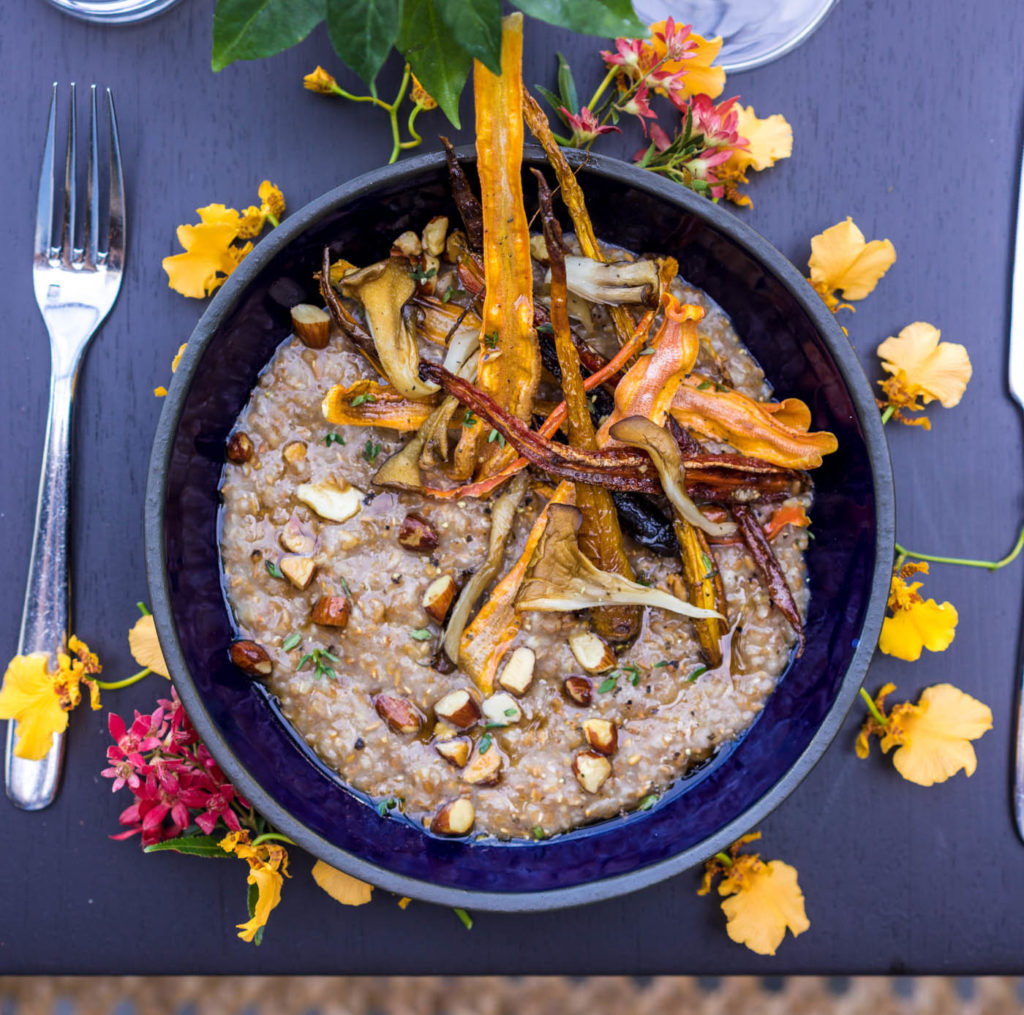
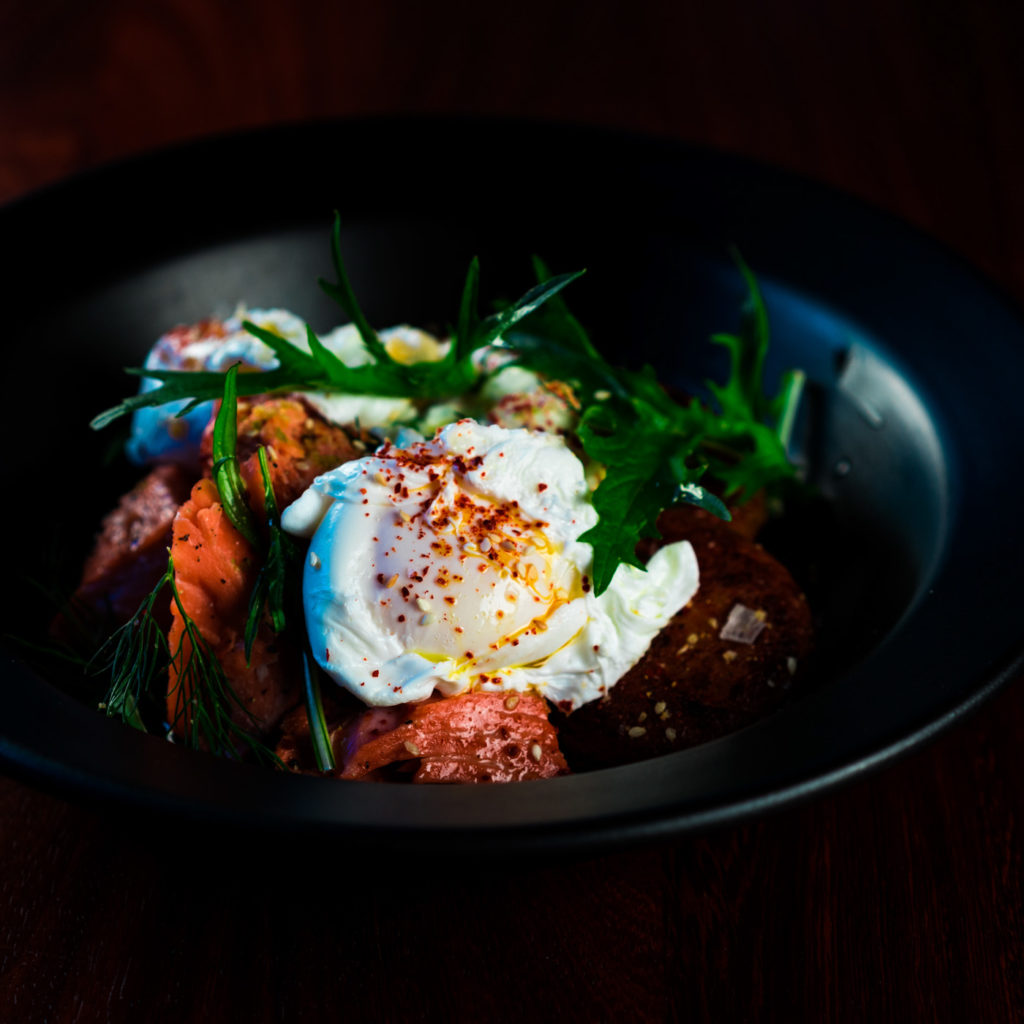
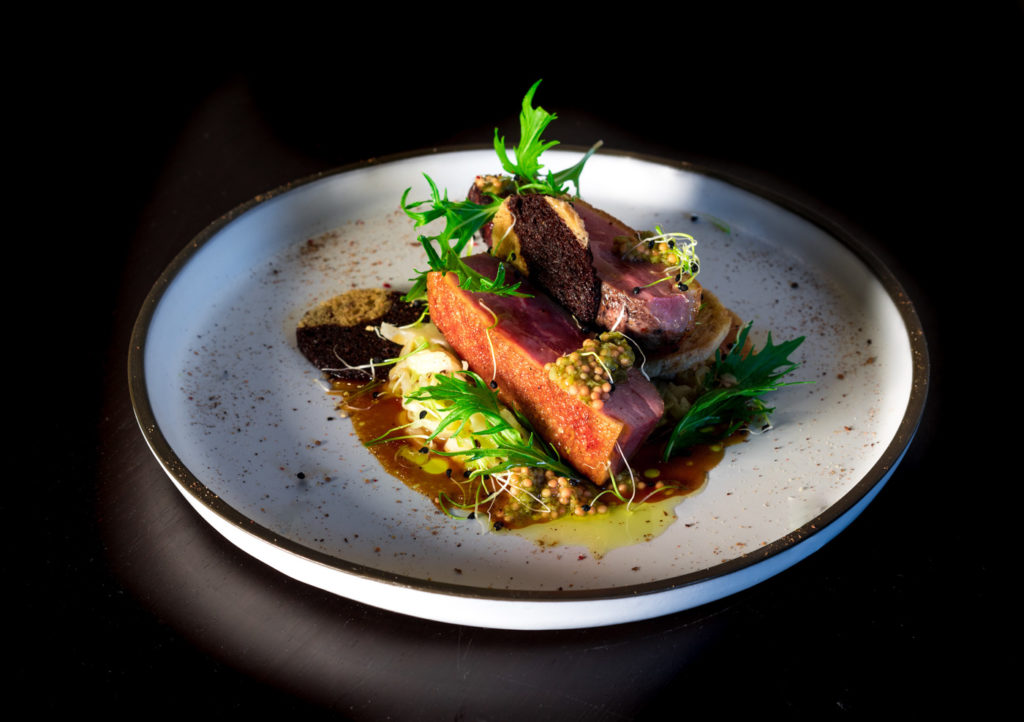
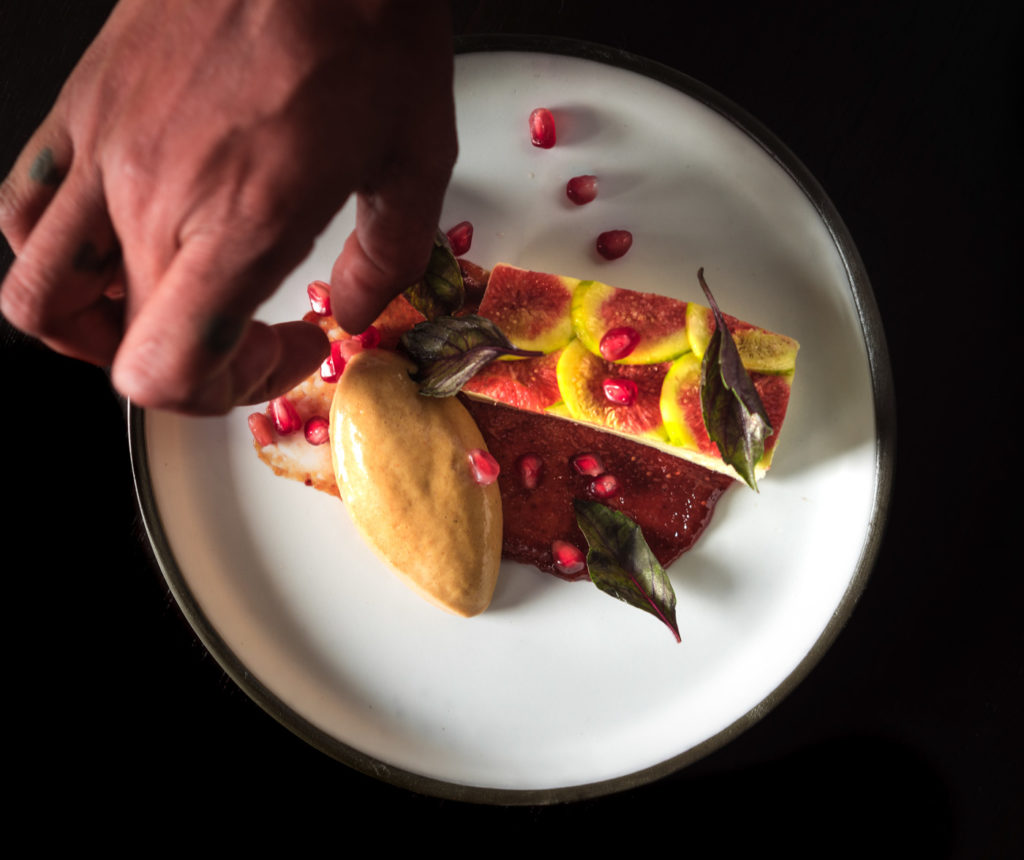
On the other side of the table, how do you think the average diner can play a role in fostering sustainability?
For the diner, it’s more about the home, and when you buy a product and don’t always use it so it ends up in the garbage. It’s understanding food preservation and going back to the times when we were preserving a lot more and canning.
I like to ferment and jar a lot, or turn things into kimchee or salt beef. Even when beef goes off, you can still dehydrate it or salt it to preserve it and make into different things. It’s all about pre-preparation. If you want to make a leek or carrot stock, use the peelings and cook them down, add some aromatics, throw it in some ice trays and freeze it, and then you’ll have a delicious base when you want to cook. It doesn’t have to be a huge production; you’ve already knocked a few layers off a recipe and can improvise from there.
In the last five years, I have become more about using organic as much as possible too. Before, you’d hear about organic and maybe think, “Oh, that’s yuppie,” but now it’s a direct correlation to our health and the human race. Food is medicine.
Not to sound cliché, but… Food lives in the soul. When you eat good, you feel good. That doesn’t mean only eating apples and celery, but it’s eating food from Meredith’s farm or Weiser Family Farms—people who care.
I’m always on cloud nine because those are the people who I work with every day.
I remember sitting in the backseat of my parents’ car and driving by restaurants and thinking, “That place looks busy. I wonder what it is about that place that resonates with people.”
Around nine years old, I told my dad, “I’m going to open a restaurant and it’s going to celebrate a different culture every day. Have you seen that? I’m going to call it A+1 Good Restaurant.”
I forgot about that until I opened my last restaurant, Leona, and my dad sat at the chef’s table. Looking around, he said, “You know, you did the thing that you said you were going to do when you were nine. You said you were going to celebrate cultures and flavors.”
I remember that moment and thought, “Wow, this is cool.”
Do you have an “A+1 Good Restaurant” for the future? What do you hope is still ahead for you?
My next layer of work is going to be in humanistic sustainability, and that also happens to be in line with food. Our world needs so much more love and healing. When I can offer that through the lens of cooking, I think that will be the next tier.
I’m at a point in my life where I’ve created a toolbelt; I’m confident and I can do whatever I want, in a very respectful way. I want to do great things in my life. I feel like I have support, and I have earned respect in the industry. I want to be like Wolfgang Puck and Oprah and Martha Stewart in one [laughs].
On that note, do you have any advice for someone just starting out, who maybe feels like their toolbelt is empty?
Nothing that is worth having comes easy. That’s really important for younger people to understand. I waited fifteen years to open my first restaurant because I needed to know the mechanics of how a true oven works next to a Molteni—how the plumbing works, electrical, all the nuts and bolts of what I actually really love to do.
I say this every day because I want everyone to rise together: there is nothing else like dedication and hard work.
It’s very important to have staying power because it takes time to develop relationships. When you set an intention, follow through hard. Exceed your own expectations every single time, on every single level. If you say you’re going to do this, then do it even better than you thought you could do it. You’re going to be doing the things anyway, so you might as well be a champion at them. A lot of things aren’t guaranteed in life, but I guarantee that will be the best thing you can do for yourself.
Additional Reading: Explore what drives Nicole Ziza Bauer, our contributing writer, on our Journal’s Contributor Spotlight series.






Our comments section is for members only.
Join today to gain exclusive access.